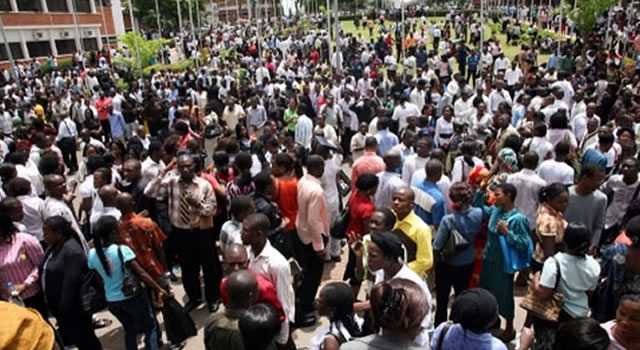The World Bank and the Federal Ministry of Education have announced their aim to train a minimum of 50,000 youths in Nigeria, empowering them with various digital skills through innovation grants.
This project is part of the Federal Ministry of Education (FME)/ IDEAS Project in collaboration with the World Bank.
It will offer hands-on vocational training to help youths access suitable jobs and provide post-placement support to ensure sustainable employment for those who choose to enter the labor market.
Speaking to reporters at the FME/IDEAS Midterm Review Meeting held at the Palms Hotel, Abuja, Senior Economist, Education Global Practice at the World Bank, Dilip Parajuli, stated that, in this particular project, the target is not large, but rather 50,000 beneficiaries.
Parajuli explained that the bank believes this is a relatively small number, considering that approximately 3.6 million youths enter the labor market each year.
However, he emphasized that while the World Bank cannot support initiatives on such a large scale everywhere, they can make an impact by employing this approach, whether it’s for 50,000, 100,000, or even 200,000 or 300,000 youths.
The primary goal is to complete all project components within five years.
Parajuli clarified that the project was approved in early 2020, with a closing date set for June 2025. Typically, World Bank projects span five years, and if they are executed on schedule, they yield significant results.
He acknowledged that the project faced challenges due to delays caused by approval holdups in the National Assembly, resulting in compounded delays.
However, the first project component was successfully completed.
Parajuli noted that this project aims to establish an agreement or platform so that others can benefit in the future, with the potential for other partners, including the World Bank, to become involved.
He highlighted the substantial skill set already present within the government.
The economist explained that the World Bank seeks to assist the government in realizing its goals and contributions through initiatives like this.
He expressed excitement about this particular project and the lively discussions on its implementation and potential design tweaks for maximum impact.
In summary, this project supports both recent school graduates and out-of-school youths interested in acquiring foundational, digital, or trade-specific skills.
Its small-scale approach is intended to serve as a platform for rapid scaling across the country, with the goal of reaching numerous youths in need of these essential skills, over the next year and a half.
Abia State Commissioner of Education, Uche Eme Uche, praised the federal government and the World Bank for the program aimed at empowering youths with digital skills.
She noted that in her state, the governor has emphasized the need to revamp the education sector, especially since the current government is from a different political party.
She highlighted that education had not received the necessary attention over the past 24 years, prompting the government to declare the education sector an emergency and implement policies to revamp it.





